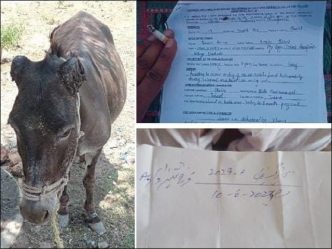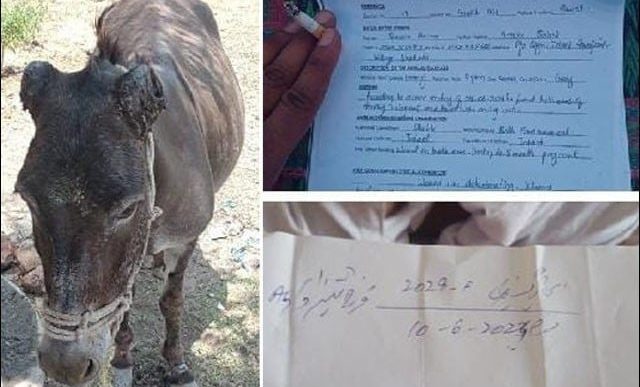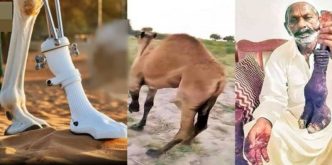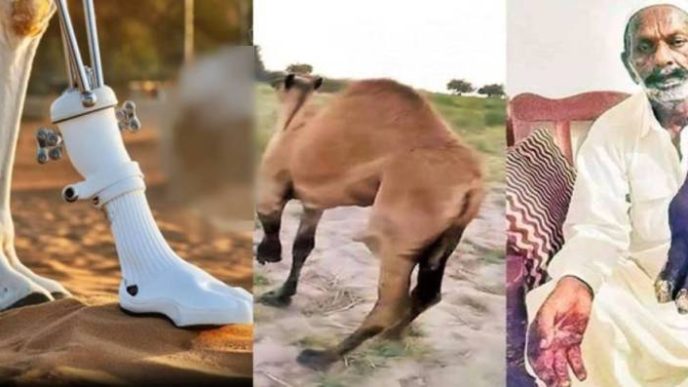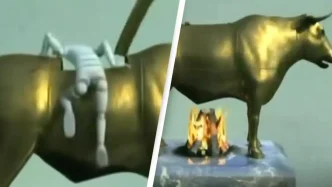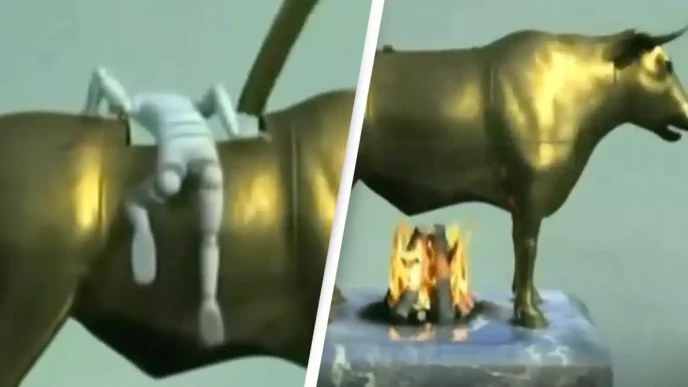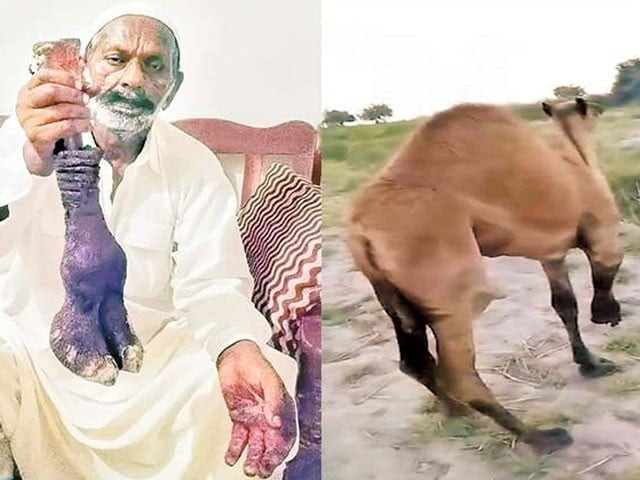
The Incident: A Scene of Cruelty
On an ordinary day, amidst the humdrum of rural life, a camel, driven by its instinctive need for sustenance, wandered into the verdant garden of Wadaira. Gardens in Sanghar are more than mere collections of plants; they are the lifeblood of the community, representing both sustenance and status. Wadaira, a man known for his meticulous care and pride in his land, saw the camel’s intrusion as a grievous trespass.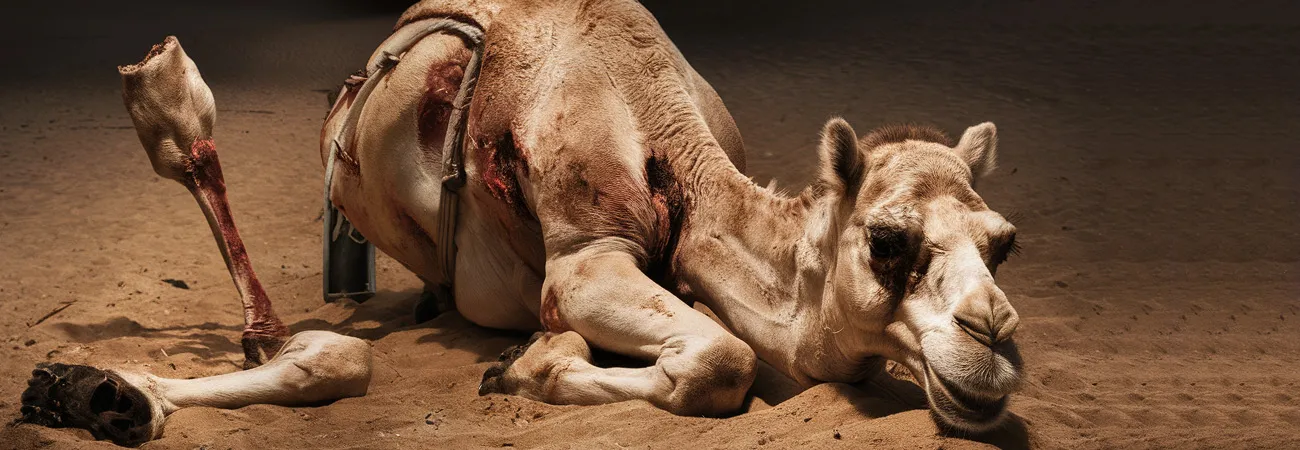
What happened next was a stark departure from the pastoral tranquility that typically defines Sanghar. In a fit of rage, Wadaira took a sharp implement and severed the leg of the unsuspecting camel. This act of brutality, shocking in its suddenness and severity, has ignited a firestorm of reactions from locals and beyond.
Unpacking the Complexity
To understand the gravity and the underlying currents of this event, we must delve into the intricate tapestry of Sanghar’s socio-cultural dynamics and the psychological profile of Wadaira.
1. Cultural Reverence and Property Rights: In many agrarian societies, animals are revered, yet property rights are fiercely protected. The garden, meticulously maintained and crucial for livelihood, is sacrosanct. Wadaira’s violent reaction can be seen as a defense of his property, albeit taken to an extreme.
2. Psychological Dimensions: Wadaira’s reaction hints at deeper psychological issues. The act of severing the camel’s leg is not merely about protecting his garden; it’s an expression of underlying frustrations, perhaps exacerbated by economic pressures or personal vendettas. Understanding Wadaira’s background and mental state might offer insights into why he resorted to such an extreme measure.
3. Legal and Ethical Implications: This incident raises critical questions about the legal and ethical treatment of animals. In many places, animal cruelty laws are either weak or poorly enforced. Wadaira’s actions challenge the community to reconsider and potentially reform its stance on animal rights and the penalties for such acts of cruelty.
The Community’s Reaction
The response in Sanghar has been a mix of outrage, sympathy, and calls for justice. Animal rights activists have descended upon the town, demanding strict action against Wadaira. Local leaders, caught between upholding traditional values and addressing modern ethical standards, find themselves in a quandary.
Villagers, who often view animals as integral to their way of life, are torn. Some empathize with Wadaira, understanding the sanctity of his garden and the economic strain of losing a harvest. Others condemn his brutality, fearing the precedent it sets for how animals are treated.
Broader Implications and Lessons
This incident is not isolated; it resonates with broader themes of human-animal interactions, the pressures of modern agrarian life, and the moral compass that guides our actions. It compels us to ask difficult questions: How do we balance the rights of animals with human economic needs? What psychological triggers lead to such extreme actions, and how can communities address them? How do laws need to evolve to protect both property and animal welfare?
A Call for Reflection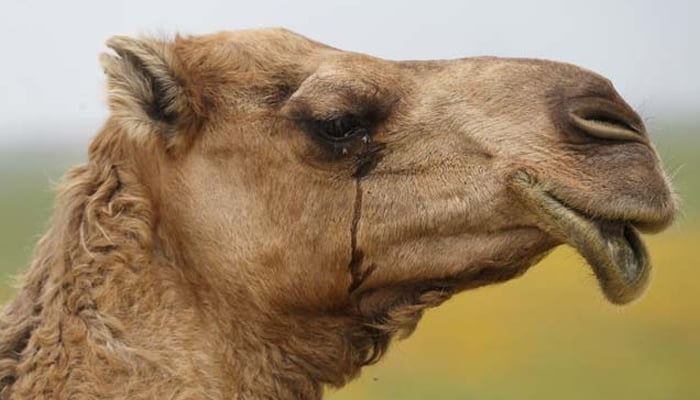
The severed leg of the camel in Wadaira’s garden is a stark symbol, a call for reflection on the fragile balance between man, nature, and the laws that govern them. As Sanghar navigates the aftermath, it stands as a microcosm for the world, reminding us that behind every act of brutality lies a complex web of societal, psychological, and ethical threads that need untangling. The challenge is not just to react, but to understand and evolve, fostering a world where such acts become relics of a less enlightened past.
